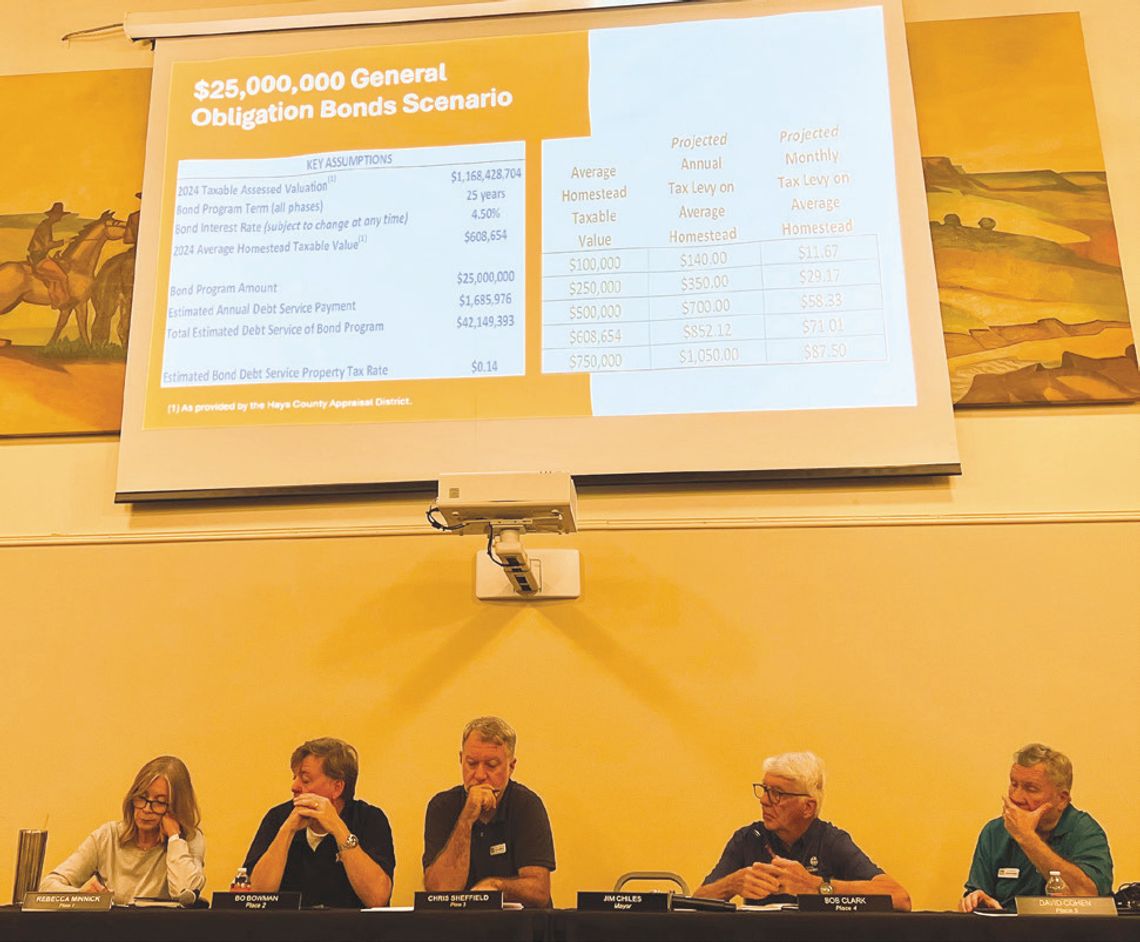At the Wimberley Townhall last week, city council members shared with residents the results of a recent citizen survey about road improvements, the outcome of a 2024 road condition study and options for paying for road repairs. After the presentation, residents were invited to comment.
Mayor Jim Chiles presented a slide program to about 100 people at the Community Center who attended the meeting. He showed a map of city roads, categorized and color coded according to their condition, that resulted from a city-initiated 2024 road condition study. Based on that information, the city began to look at ways to finance road improvements.
They found that the cost of road repair can be staggering, especially for small towns like Wimberley who don’t impose property taxes and for whom many of its citizens live outside city limits. Those residents would not be subject to paying for the improvements.
Mayor Chiles explained that road repairs fell into three categories. A seal coat improved roads with minor cracking issues. Roads in greater need of repair would require removing and reapplying the top layer of asphalt. The cost for this level of repair for both lanes is approximately $400,000 to $500,000 per mile.
For roads in the worst shape, a full reconstruction is necessary. All asphalt is removed and reinstalled and one mile of new construction, for a single lane only, is about $1 million. Road improvement costs do not include curbs, drains, sidewalks and driveway entries.
In light of the cost to repair city roads, the council presented options to the public: the city could impose a property tax, residents could approve a $25 million, 25-year road bond, public improvement districts could be created, or the city could continue to embark on small projects and maintenance as it is, using the funds set aside in their yearly budget.
The options for initiating a property tax or to create public improvement districts did not seem to arouse much discussion or support from either the city council or the public. Continuing the city-funded road maintenance program, which is, at best, a piecemeal approach, drew some comments, but most of the discussion centered around the bond program.
Approximately 15% more of the people who responded to the citizen survey were in favor of the bond program over those who were not.
The $25 million bond program, Mayor Chiles explained, over a term of 25 years, at the current rate of 4.5%, is estimated to cost $42,000,000 by the end of its term. The debt would fall on homeowners within the city limits. The average assessment of homes in Wimberley is $608,654, so the yearly cost for those homeowners is projected to be approximately $852. or $71. a month.
If a road bond program is chosen, it is subject to an election. Residents would be required to vote to accept or deny the bond debt on May 3, 2025. It is estimated that full repairs would take about four to five years to complete.







